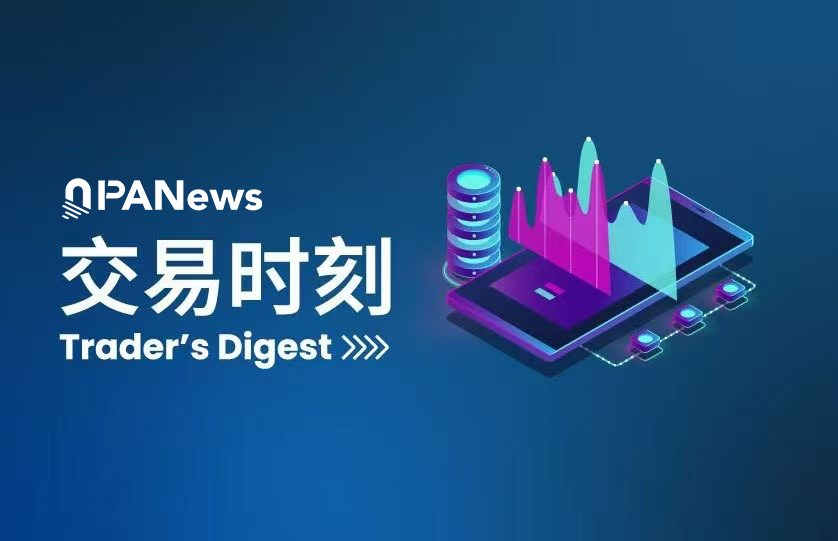Ethereum’s Outperformance Raises Bitcoin’s Safe-Haven Status
2025/08/25 15:08

Clause de non-responsabilité : les articles republiés sur ce site proviennent de plateformes publiques et sont fournis à titre informatif uniquement. Ils ne reflètent pas nécessairement les opinions de MEXC. Tous les droits restent la propriété des auteurs d'origine. Si vous estimez qu'un contenu porte atteinte aux droits d'un tiers, veuillez contacter service@support.mexc.com pour demander sa suppression. MEXC ne garantit ni l'exactitude, ni l'exhaustivité, ni l'actualité des contenus, et décline toute responsabilité quant aux actions entreprises sur la base des informations fournies. Ces contenus ne constituent pas des conseils financiers, juridiques ou professionnels, et ne doivent pas être interprétés comme une recommandation ou une approbation de la part de MEXC.
Partager des idées
Vous aimerez peut-être aussi

Stablecoins and RWA cross-border innovation practices, Shanghai seminar discusses the new financial ecosystem
Blockchain technology has become the core driving force for the digital transformation of the financial industry, demonstrating huge potential in application scenarios such as cross-border payments and financial innovation. In particular, stablecoins and RWA ( Real World Assets), as key areas for the implementation of blockchain technology, have attracted widespread attention from the global market. To further promote industry exchanges and explore the opportunities and challenges brought about by the rapid development of stablecoins and RWA , the "Blockchain-Driven Stablecoins and RWA : Exploring Cross-Border Trade and Financial Innovation Practices" event was successfully held in Shanghai on the afternoon of August 22nd . It was hosted by the Shanghai Financial Information Industry Association and the Shanghai Distributed Consensus Technology Association, co-organized by PANews and Mankiw LLP, and supported by Mobile Payment Network and the Blockchain Technology Application Alliance . The seminar was hosted by Zang Qin, Deputy Secretary-General of the Shanghai Financial Information Industry Association. It focused on the exploration and practice of stablecoins and RWA in cross-border trade, financial compliance and other fields. It attracted more than 100 practitioners from banks, securities companies, law firms, asset management institutions, financial technology and start-ups to participate and jointly discuss the implementation path and future development of stablecoins and RWA . Wu Jun, Secretary-General of the Shanghai Financial Information Industry Association, delivered an opening speech on behalf of the organizers, noting that stablecoins are not entirely new, but their payment properties offer significant advantages in cross-border trade , characterized by high efficiency and low costs. Compared to traditional financial systems, stablecoins can be deposited within seconds and offer extremely low fees, making them a highly promising payment tool in international trade. However, he also emphasized that innovation must be promoted under a strict regulatory framework and compliance premise to ensure transparency , so that participants can jointly promote the stable development of digital finance on the basis of fully understanding the risks . PANews senior reporter Wang Shengyu provided an in-depth analysis of the "2025 Global Stablecoin Industry Development Report" during the report interpretation session. He noted that stablecoins have become one of the most critical infrastructures connecting traditional finance and the crypto market and are transforming the global financial landscape. His speech comprehensively analyzed the stablecoin industry, combining on-chain transaction data, policy developments, and the industry's evolutionary path. He systematically examined the six dimensions of stablecoins: development history, market structure, application scenarios, global regulation, development potential, and potential risks. In his opening keynote speech, Mao Jianhao, a senior attorney at Mankiw LLP, analyzed the core logic and compliance path of RWA tokenization from a legal compliance perspective. He noted that the core of RWA lies in its dual attributes of "digitalization " and "programmability," both of which are indispensable. Using BlackRock's BUIDL Fund as an example, he detailed its compliance architecture and on-chain transaction mechanism, emphasizing that "whitelisting mechanisms, redemption processes, and real-time valuation" are the first steps in exploring compliant tokenized funds . He believes that the future development of RWA will rely more on stablecoins as the underlying liquidity tool, and Hong Kong's stablecoin licensing system will provide a clear compliance framework for this field. With the rise of stablecoins and RWAs , the development of related applications within the infrastructure layer has also flourished. Conflux Co-founder and COO Zhang Yuanjie shared the role of domestic public chains in the globalization of stablecoins and RWAs from a public chain perspective , emphasizing the crucial role of the Asia-Pacific region, particularly Hong Kong and mainland China, in the RWA ecosystem. He also mentioned that the current market driving force of RWA mainly comes from the financial management needs of stablecoin holders, rather than traditional financial institutions. It is a bottom-up process of penetration from the crypto market to traditional finance. The final speaker, Zheng Lijiang, Research Manager at Shanghai Wanxiang Blockchain Co., Ltd., addressed the topic from a monetary theory perspective, arguing that stablecoins are not currencies but rather "quasi-currencies," essentially digital certificates issued by the private sector based on reserves such as government bonds. He further analyzed the differences between stablecoin policies in the United States and Hong Kong, noting that Hong Kong currently prioritizes Know Your Customer (KYC) and Anti-Money Laundering (AML) over encouraging DeFi integration. "Exploring the Application of Stablecoins in Cross-border Trade Payments" was the first topic of the roundtable discussion. This round was hosted by Mao Jianhao, a senior lawyer at Mankiw LLP, and invited guests including Zentek VP Erin Du , Robert Feng , Deputy Director of Global Institutional Cooperation for KUN Business, Xu Feng, founder of Coshine Kaixian Software, and Derek Wan, Head of BD for Cobo Payment , to participate in the discussion. Zentek VP Erin Du pointed out that cross-border payments face pain points such as slow bank review, long payment cycles, and high fees, especially in Southeast Asia, where financial infrastructure is still underdeveloped. Robert Feng, deputy director of global institutional cooperation at KUN , added that the political and financial environments of different countries vary greatly, and Latin America and Africa are more receptive to stablecoins due to their weak financial systems. Xu Feng, founder of Coshine Kaixian Software, shared his experience in helping overseas payment institutions connect to the Visa card issuance system, and believed that stablecoins have entered the practical stage in the To B scenario; Derek Wan, BD head of Cobo Payment, emphasized from the perspective of wallets and custody that security is the key to the implementation of stablecoin payments, and proposed the flexibility advantages of "full custody" and "MPC custody" one-stop solutions for cross-border payment companies going overseas. The guests unanimously agreed that stablecoins have moved from "proof of concept" to "large-scale trials" in cross-border payments, but compliance, security and the participation of financial institutions remain the main challenges. The second roundtable discussion focused on the topic of "Market Dynamics and Application Potential of Stablecoins and RWAs ". It was hosted by PANews senior reporter Jae , and guests including Conflux co-founder and COO Zhang Yuanjie, GF Securities Shanghai Branch Institutional Business Deputy Director Li Rongbin, HashKey Group Marketing Director Siya , CertiK Anti-Money Laundering Product Expert Cheng Yuan and others participated in the discussion. Conflux co-founder and COO Zhang Yuanjie pointed out that the core driving force behind the adoption of RWA is the financial management needs of stablecoin holders, and the integration of DeFi protocols has greatly enhanced its appeal through the dual-income model of "underlying asset returns + token incentives"; Li Rongbin, deputy director of institutional business at GF Securities Shanghai Branch, believes that listed companies' enthusiasm for RWAs is partly due to "market value management," but in the long run, they still need to return to the quality and liquidity of the assets themselves; Siya , head of marketing at HashKey Group , said that 2025 is the " first year of the RWA narrative," with factors such as improved regulatory clarity, mature technical infrastructure, and institutional entry jointly driving the market explosion; Cheng Yuan, an anti-money laundering product expert at CertiK , emphasized from a compliance and security perspective that RWA projects need to overcome compliance differences in multiple countries and monitor smart contract risks, and recommended that companies carefully consider the cost and security aspects. The guests believed that although RWA has advantages such as " democratic asset access " and " global liquidity " , it still faces bottlenecks such as high compliance costs, distribution channels relying on the European and American ecosystems, and a shortage of asset managers.
Partager
PANews2025/08/25 17:35
Partager

Trading time: The plunge in US stocks triggered a gold safe-haven trend, and the crypto market was under short-term pressure
Daily market key data review and trend analysis, produced by PANews.
Partager
PANews2025/04/11 14:40
Partager

The youngest public chain to launch USDC? Stablecoin public chain Codex has built-in compliance solutions to solve the exchange problem
Author: Haonan Li Compiled by: Tim, PANews On June 24, the stablecoin public chain Codex announced that the USDC native minting function was officially launched on its chain. Codex thus
Partager
PANews2025/06/25 18:29
Partager